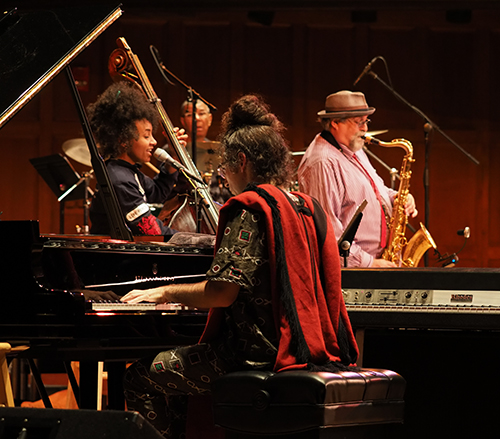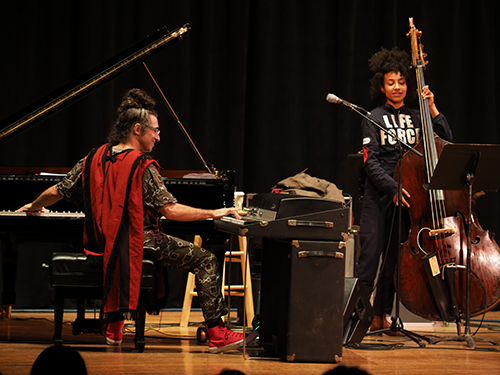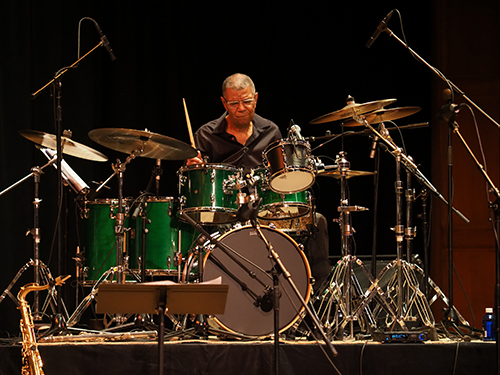by Nia Burger
Special to ClevelandClassical.com

Genovese took the first solo after the head of Spring Day, balancing his left hand in unison with Spalding’s bass line, his right hand tickling the keys of the upper region of the piano. His right hand led us through a series of twists and turns, loopholes opening and closing, as his melodies guided us through the intricate maze of his improvisation. Solos taken throughout the concert were lengthy, allowing each musician to fully flesh out their musical ideas without feeling rushed.
As Spalding took the improvisational torch from Genovese, her solo showcased both her technical fluency on the bass as well as her bold musical choices — often ending an impressive tour of the fingerboard on a low, dissonant note before starting a new phrase. She started off the second tune, DeJohnette’s Herbie’s Hands Cocked, with an arpeggiated, repetitive motif reminiscent of rolling waves. Later, Lovano’s solo seemed to fly away, bringing the audience with him as if the string of a helium balloon were tied to our fingers, pulling us up between the clouds and swirling around the sun. Finally, Spalding and Genovese brought us back to the ground with the same underlying motif that started the tune.

Thus far we had only heard snippets of DeJohnette’s expertise as he interjected comments here and there in response to the other soloists. Finally, on Bathtime Magician, the audience was treated to a drum solo that started off the tune. Not only did he play with rhythm, but with time, music, and space as well. Hands down the best drum solo I’ve ever witnessed. Not one moment was I left wondering when it would end as he orchestrated the solo, complete with multiple voices in conversation with one another, creating an illusion of a full band. I didn’t realize how entranced I was until the rest of the group came in, pulling me back into reality. I got the drum solo I was waiting for, and it was better than I could have imagined.

Photos by Dale Preston.
Nia Burger, a fourth-year student at Oberlin College in Gender, Sexuality & Feminist Studies, and a member of the Practicing the Art of Music Journalism class taught by Mike Telin and Daniel Hathaway, has studied Gypsy jazz, Delta blues, and classic rock. This review is reprinted from the Oberlin Musical Journal.
Published on ClevelandClassical.com April 30, 2019.
Click here for a printable copy of this article


